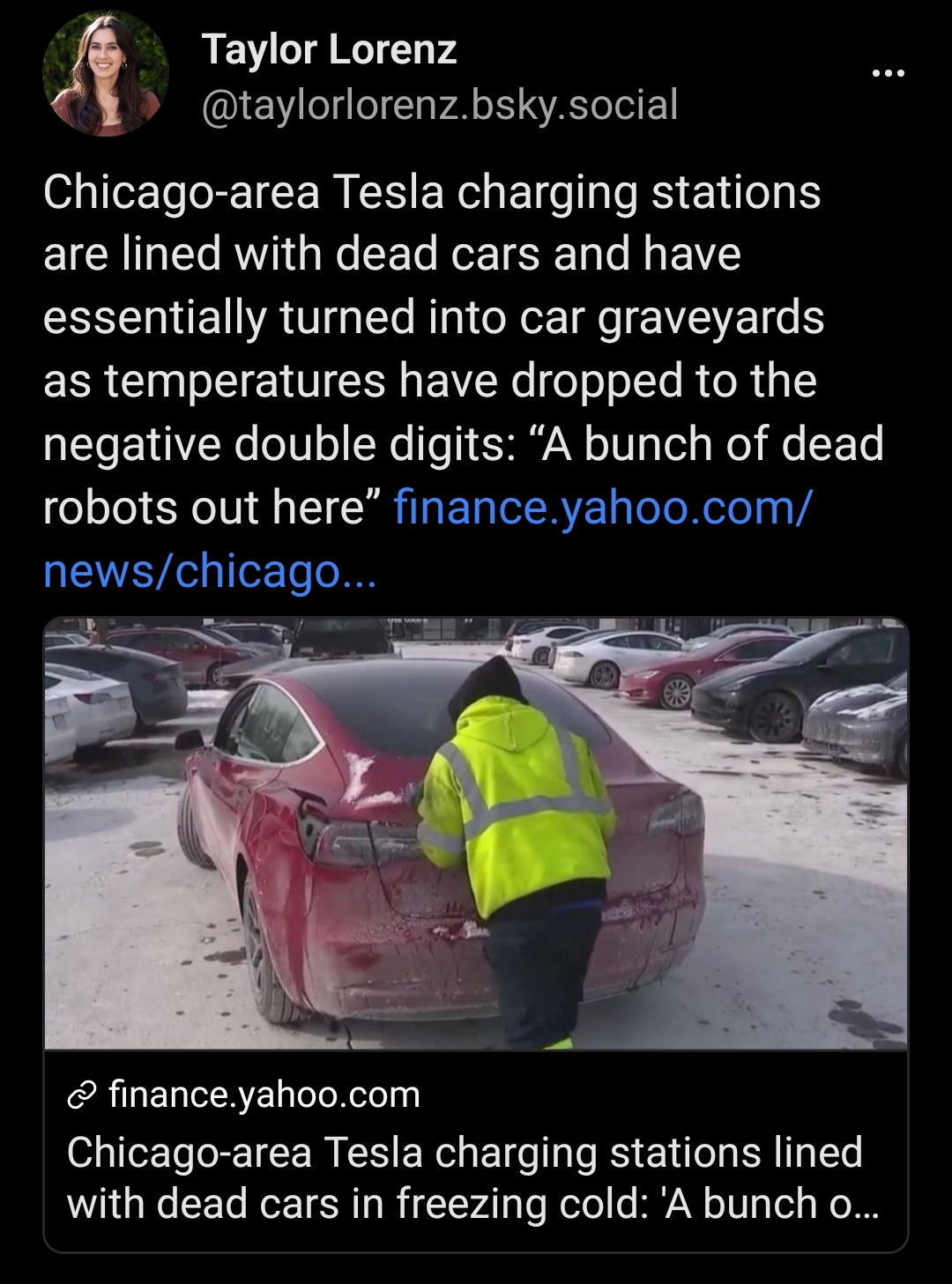this post was submitted on 16 Jan 2024
5 points (100.0% liked)
People Twitter
5220 readers
1941 users here now
People tweeting stuff. We allow tweets from anyone.
RULES:
- Mark NSFW content.
- No doxxing people.
- Must be a tweet or similar
- No bullying or international politcs
- Be excellent to each other.
founded 1 year ago
MODERATORS
you are viewing a single comment's thread
view the rest of the comments
view the rest of the comments

Neither the article nor the post are worth anything: They don't tell any of the interresting parts. What are the temperatures? How long have the temperatures been like that? Why are all the cars at 0%? Why won't they charge?
Every halfway decent EV has an electric heater for the batteries. As long as there is juice in the batteries it will stop them from falling below a certain temperature to prevent permanent damages. Even if the heating drained all that was left, if you plug it in - the heating can start again. Why is this suddenly a problem in Chicago while many European countries regularly have -20°C and no dead Teslas or other EVs?
So I have a Tesla and my roommate has a Nissan leaf. Both of us were somewhat affected by this. The real issue is EVs charge very slowly when the battery is cold and the public charging network is just large enough to support the current number of EV owners. Generally my car uses 200wh per mile with no climate control, 250 with AC running, and 300-350 with the heater running. Temperature here has been highs of -15C with lows hitting -25C. The past few days I've been averaging 500-600wh per mile. This alone almost triples demand for public charging stations, mostly from people who live in apartments and don't have home charging
To compound this, trips that normally don't require public charging are now out of range. I drove about 150 miles to ski over the weekend. Normally this is totally fine on a single charge but with the excessive power use I decided to top up on the way home. Normally I super charge for about 3-5 minutes for an extra 30-40 miles of range and plug in when I get home. I sat at a supercharger for 15 minutes before it was warm enough to accept the charge, then took an additional 20+ minutes to get 30 miles of extra charge. It builds up like a domino effect. Cars waiting to charge delay other cars that get there after.
My roommates Leaf had a similar experience at a CCS charging station. This is all in a city that prioritizes EVs. Chicago is a much larger city with a less robust charging network and had even colder temperatures.
Honestly I'm not super surprised they had charging issues during this freeze.
Edit: To clarify, if I had set the car to heat up 45 minutes before going to charge it would have charged at nearly full rate. It just takes a long time to get the battery up to temp from -20C. When it's over 5C outside everything performs normally, -5 to 5C I have reduced regenerative braking but everything is mostly normal. Acceleration is reduced once it hits -15C. Still better than my old Honda Accord but noticeably reduced.
Thanks for providing some actual numbers and context.
Sometimes I am really surprised by the absolute laziness of 'journalists'. Your comment contains more information than the so called article.